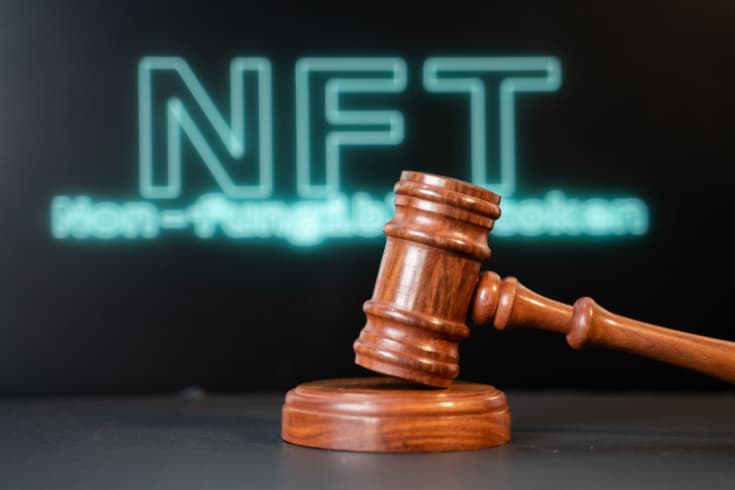Explanation of the Regulation of Stablecoin

Stablecoins, a type of crypto currency or virtual currency, have emerged in recent years alongside various other types of crypto currencies.
Regulations on stablecoins are advancing in Japan amid the events of May 2022 when Terra USD, a stablecoin, lost its link to the US dollar and plummeted.
This article aims to provide legal staff involved in stablecoin-related businesses with an explanation of the regulations pertaining to stablecoins under Japan’s revised Payment Services Act in 2022.
“Stablecoins”
A stablecoin is a type of cryptocurrency that is designed to maintain a stable value by being pegged to a legal currency or algorithm.
Stablecoins, such as Tether and USD Coin, are characterized by their relatively stable price, as indicated by their name.
Stablecoins has the capability of connecting their value to either legal tender or specific algorithms; however, their values are not set in stone and experience fluctuation within a certain range. As a result, there are some investgators who are turning to stablecoins to gain capital from price fluctuations.
Regulations on Stablecoins

On June 3, 2022, the House of Councillors in Japan passed and enacted the “Law for Partial Revision of the Fund Settlement Act to Build a Stable and Efficient Fund Settlement System” during its plenary session. This law, also known as Japan’s revised Payment Services Act of 2022, provides legal regulation for stablecoins. Japan will be one of the first countries to have such regulations for stablecoins.
Due to the high risk of stablecoins being utilized for money laundering, it was deemed necessary to implement anti-money laundering measures.
The objective of regulating stablecoins is not limited to preventing money laundering but also extends towards safeguarding the interests of investors.
“Key Points of Japan’s Revised Payment Services Act in 2022”
The 2022 revision of Japan’s Payment Services Act comprises three key elements.
- Addition of regulations regarding stable coins
- Addition of regulations on electronic gifts and prepaid cards capable of high value transfers
- Addition of provisions on joint monitoring regime for money laundering
Collateralized Stablecoins are Subject to Regulations
In 2022, the Revised Payment Services Act of Japan will include regulations for stablecoins. We will now provide an explanation of these additions.
“Types of Stablecoins and Scope of Regulation”
In this revision, stablecoins are classified into two main categories, namely “collateralized” and “uncollateralized”. The former falls under the regulatory framework while the latter does not. It is important to differentiate between the “secured type” and “unsecured type” of stablecoins.
The term “collateral type” encompasses various forms of collateral such as legal currency, virtual currency, and commodity.
The term “collateral” refers to the underlying asset or security that supports the value of a stablecoin.
The collateral type for legal currency entails the backing of legal currencies like the US dollar and yen, while for the virtual currency collateral type, the value is relatively steady among crypto assets like Bitcoin and Ethereum. The value is supported by the currency or crypto currency.
Commodities like gold and crude oil support commodity-backed loans.
However, while it may be unsecured, it is not entirely unsupported. The stablecoin’s value is supported by a specific algorithm employed by the issuer.
Although the “unsecured type” is not subject to the 2022 revision of the Payment Services Act of Japan, it is important to note that there are still legal restrictions in place.
Businesses that engage in the sale, exchange or brokerage of “uncollateralized” stablecoins should be mindful of the existing laws and regulations in Japan, as they may be classified as either crypto assets under the Payment Services Act or securities under the Financial Instruments and Exchange Act. For instance, unsecured stablecoins could potentially fall under either category. It is important to take note of the regulations governing cryptocurrency exchanges.
“Regulations on Stablecoins”
The regulations regarding stablecoins entail the implementation of a registration system for intermediaries who are accountable for the trading and management of stablecoins. Failure to register will result in the inability to engage in the trading and management of stablecoins.
In addition to regulating intermediaries, it also regulates the issuance of stablecoins
Stablecoins can only be issued by banks, money lending companies, and trust companies. Other institutions are not authorized to issue stablecoins as per the regulations.
In Japan, regulations on stablecoins are overseen from two aspects: “transactions and management” and “issuance”.
Regulations on High Value Electronic Transferable Prepaid Payment Instruments

The term “Large-value Electronic Transferable Prepaid Payment Instruments” refers to third-party prepaid payment instruments, including electronic money, that satisfy the following criteria:
1. Those remaining balance is registered in the Prepaid Payment Instruments Record Account.
2. Assets that are transferable through an electronic information processing system.
The ease of transferring high-value funds via electronic gift certificates and prepaid cards has given rise to concerns over their potential use in money laundering activities. As a result, Japan’s Payment Services Act of 2022 has been amended to include regulations that restrict issuers of high-value electronic transferable prepaid payment instruments.
Regarding the regulation, it sets a maximum remittance amount of 100,000 yen for a single transfer and 300,000 yen for monthly transfers using gift coupons and prepaid cards. In the event prepaid payment instruments such as electronic gifts and prepaid cards exceed this limit, the issuer must conduct identity verification procedures.
“Regulations for Joint Monitoring System for Money Laundering”
The Payment Services Act of 2022 in Japan has undergone revisions that established fresh rules concerning joint monitoring systems to counteract money laundering.
The Japanese Financial Services Agency will oversee the establishment of a new business category known as the “foreign exchange transaction analysis business” which will require a license system for financial institutions considering joint monitoring systems to combat money laundering.
“Regulations on Stablecoins under Japan’s Revised Payment Services Act”
Up to this point, I have provided an overview of Japan’s updated Payment Services Act for 2022, with a particular emphasis on the regulations surrounding stablecoins.
It is imperative to consult with the legal department of any enterprise engaged in stablecoin-related operations to verify compliance with Japan’s amended Payment Services Act in 2022.
We advise seeking the counsel of a lawyer who possesses specialized knowledge of both crypto-assets and blockchain technology, as laws and regulations regarding these areas require expertise beyond that of traditional legal matters.
“Guidance on Countermeasures by Our Office”
Monolith Law Office is a legal firm that boasts extensive knowledge in the fields of IT, specifically the internet, and law. This is evident in our ability to provide comprehensive support to businesses involved in crypto assets and blockchain. We achieve this by thoroughly researching the legality of schemes in Japan, developing white papers and contracts, and conducting in-depth analysis of foreign white papers.
Category: IT





















